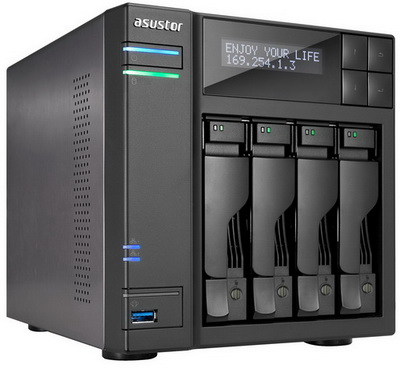INTRODUCTION
After roughly 8 years of testing NAS servers i still get asked quite a lot by both regular consumers and people of the electronics industry as to why i refer to network attached storage devices as servers. We did answer that last time we had one such review with a small history "lesson" so once again although when introduced in the market over a decade ago NAS devices had but one purpose which was to make lots of storage space available to local network computers that changed over the year and since right now they can be used for a plethora of things other than that (by both regular consumers and professionals alike) i think that they have won every right to be called that. It's been a while since we last had a NAS server by ASUSTOR in our lab but since they recently released their brand new AS620xT series it was just a matter of time before the 4bay model made it here.
Founded in 2011, ASUSTOR Inc. is a leading innovator and provider of private cloud storage (network attached storage) and video surveillance (network video recorder) solutions. We are devoted to providing the world with unparalleled user experiences and the most complete set of network storage solutions possible.
ASUSTOR is the very first NAS manufacturer to use the brand new and much improved (compared to the previous generation J1900 model) Celeron N3150 Quad-Core CPU by Intel that runs at 1.6GHz (64Bit, 14nm, 6W TDP, 2.08GHz Burst speed, 2MB of L2 cache, AES hardware encryption, 8GB DDR3L Max) and has the Cherryview integrated HD Graphics (Mesa 10.6.0) which fully supports DirectX, OpenGL 3.0 and Intel’s Quick Sync Video, Clear Video HD Technology and Wireless Display technologies. The AS6204T also features 4GB of DDR3L RAM (2x2GB running at 1600MHz), four SATA III bays (support single, JBOD and RAID 0/1/5/610 modes), three USB 3.0 ports, two USB 2.0 ports, two eSATA ports, two RJ45 Ethernet ports, HDMI v1.4b port, IR receiver and an S/PDIF optical audio output. So let's move closer and see how the new N3150 CPU compares to its predecessor and pretty much every other CPU used in NAS models currently.

 O-Sense
O-Sense








.png)

